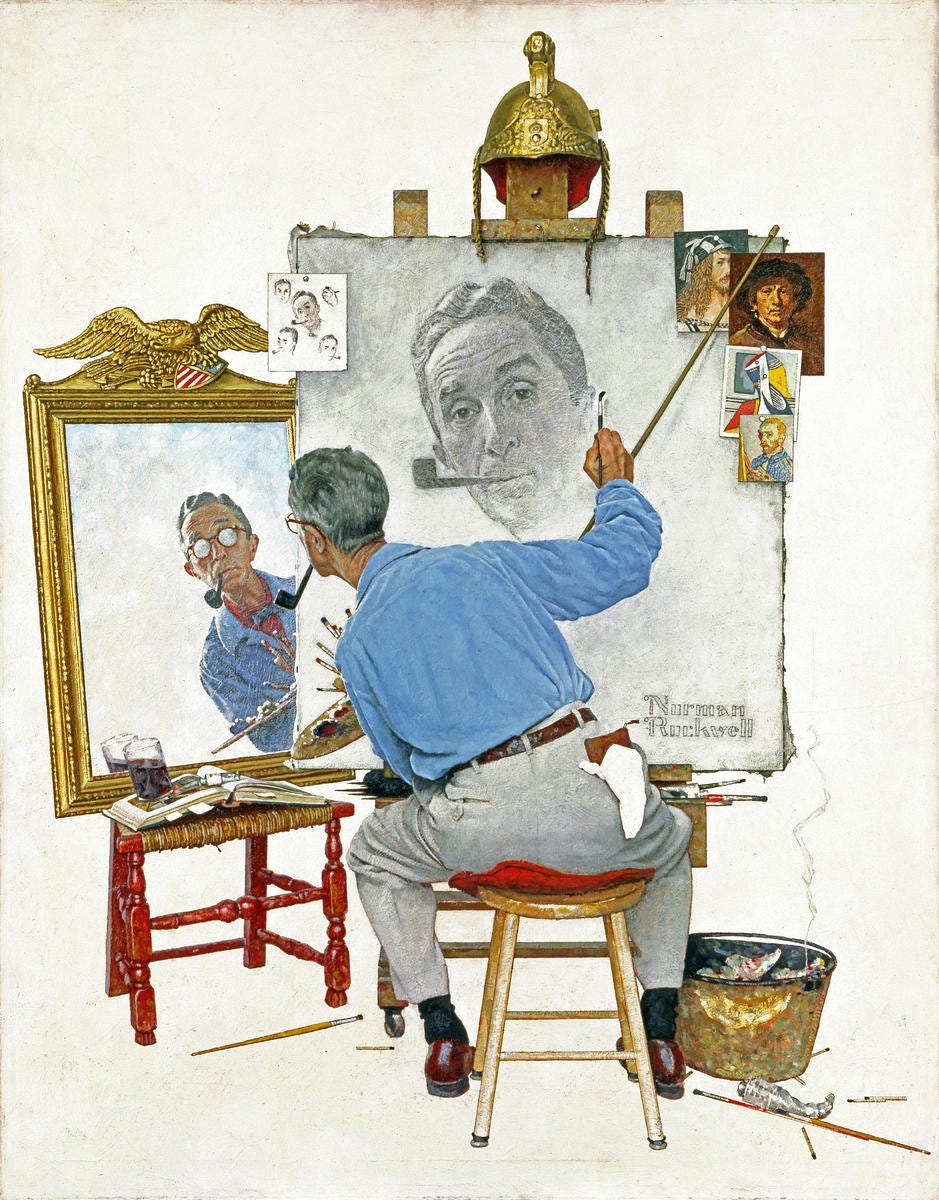70. Self-Portrait (Adam Zagajewski, trad. Claire Cavanaugh)
Un día primaveral. Ya se empieza a notar también por los pájaros. Hoy los sinsontes estaban especialmente activos cuando pasé por el jardín de la Basílica. (Hace poco caí que el libro de Harper Lee tendría que ser técnicamente—no literariamente—“Matar a un sinsonte” = mockingbird).
Como voy con esa mirada “más vulnerable” y quizá porque hoy era un día soleado y glorioso, he notado algo en lo que nunca me había detenido. En la fachada de la biblioteca hay 15 ventanales y encima de cada ventanal hay un nombre en bajorrelieve. SHAKESPEARE es el que ocupa puesto central, sobre la ventana que está encima de la puerta, donde también está inscrito el lema “OMNIA VINCIT VERITAS”. Es casi lo contrario al “abandonad toda esperanza” de las puertas del infierno de Dante. Mientras hay verdad y vida hay esperanza, así que la traducción del lema latino bien podría ser aquello de Shakespeare: “O, while you live, tell truth, and shame the Devil!”
De izquierda a derecha, los nombres inscritos sobre roca son:
Dante · Homer · Cicero · Augustine · Aquinas · Virgil · Scotus · Shakespeare ·
Bossuet · Pasteur · Lavoisier · Ampere · Roentgen · Skarga · Suarez
No sé por qué Suárez no está con los suyos.
Los estudiantes están de Spring Break, así que no había prácticamente nadie más en la biblioteca aparte de los que trabajamos allí. A., que se gradúa ya este año, me ha contado que está dirigiendo una producción de Romeo y Julieta con estudiantes de primero. Está muy ilusionado así que le he prometido que iría.
G. tiene un concierto este domingo: la misa en si menor de Bach. Intentamos ver un documental que le habían recomendado sobre la preparación del concierto dirigido por Jordi Savall en la abadía de Fontfroide, pero no lo encontramos, así que escuchamos algunos de sus trozos favoritos. (Ahora que escribo esto, se me ha ocurrido buscar y veo que el documental lo tenemos disponible a través de la web de la biblioteca—es, insisto, lo mejor de la universidad). La música es para mí un gran misterio. Es algo ante lo que me siento ignorante y que me gustaría comprender mejor, pero esto es también lo que la hace un mysterium tremendum et fascinans: lo inefable, lo otro a la palabra, ante lo que sólo me cabe recibir en la pobre medida de mi recipiente.
SELF-PORTRAIT
Adam Zagajewski
Between the computer, a pencil, and a typewriter
half my day passes. One day it will be half a century.
I live in strange cities and sometimes talk
with strangers about matters strange to me.
I listen to music a lot: Bach, Mahler, Chopin, Shostakovich.
I see three elements in music: weakness, power, and pain.
The fourth has no name.
I read poets, living and dead, who teach me
tenacity, faith, and pride. I try to understand
the great philosophers—but usually catch just
scraps of their precious thoughts.
I like to take long walks on Paris streets
and watch my fellow creatures, quickened by envy,
anger, desire; to trace a silver coin
passing from hand to hand as it slowly
loses its round shape (the emperor’s profile is erased).
Beside me trees expressing nothing
but a green, indifferent perfection.
Black birds pace the fields,
waiting patiently like Spanish widows.
I’m no longer young, but someone else is always older.
I like deep sleep, when I cease to exist,
and fast bike rides on country roads when poplars and houses
dissolve like cumuli on sunny days.
Sometimes in museums the paintings speak to me
and irony suddenly vanishes.
I love gazing at my wife’s face.
Every Sunday I call my father.
Every other week I meet with friends,
thus proving my fidelity.
My country freed itself from one evil. I wish
another liberation would follow.
Could I help in this? I don’t know.
I’m truly not a child of the ocean,
as Antonio Machado wrote about himself,
but a child of air, mint and cello
and not all the ways of the high world
cross paths with the life that—so far—
belongs to me.



